With our products we pursue a resource-saving development.
We therefore use selected and credible seals in the selection of materials and
production, thus contributing to the protection of people, animals and the environment.
More information on the seals currently in use can be found below:
| Label | Description | Social Criteria | Ecological Criteria | |
|---|---|---|---|---|
Green button |
The Green button is a governmental, consumer-friendly and sustainable label for textiles. It covers social and environmental criteria. In addition to a required product test, the company itself is also be tested in order to be able to prove human rights, social and ecological responsibility. |
|
 |
 |
Ecovadis |
EcoVadis' world-leading corporate sustainability rating covers a wide range of non-financial management systems, including environmental impacts, labor and human rights, ethics, and sustainable procurement. In this context companies are rated on issues relevant to their size, location, and industry. These assessments are then translated into scorecards with scores from zero to one hundred (0-100) and medals (bronze, silver and gold). |

|
 |
 |
| Further certificates from A-Z | ||||
CmiA |
Through our cooperation with Cotton made in Africa, we are making a valuable contribution to environmental protection and the training of smallholders in socially and ecologically sustainable farming methods that improve their living conditions and protect the environment. environment. |
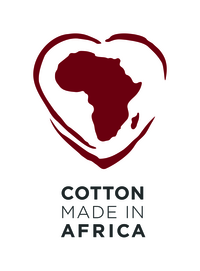
|
||
CRADLE TO CRADLE (C2C) |
The Cradle to Cradle label distinguishes products that use materials that are environmentally safe, harmless to health and recyclable. These products can be returned as biological nutrients in a biological cycle. |
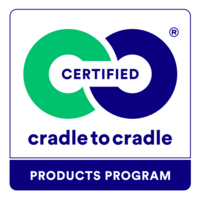
|
 |
|
Fairtrade |
Products that bear the "Fairtrade Cotton" seal are made of Fairtrade-certified cotton that is grown using environmentally friendly practices. It also guarantees an improvement of socially acceptable living and working conditions in production that are sustainably assured. |
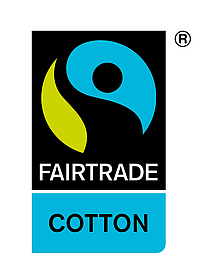
|
 |
 |
GOTS |
The Global Organic Textile Standard (GOTS) is recognised as a leading global standard for processing textiles from organically produced natural fibres. We comply with all environmental requirements along the entire textile production chain with simultaneous compliance with social criteria. |
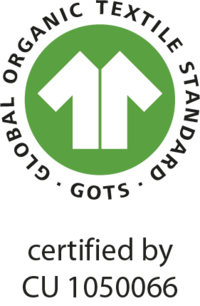
|
 |
 |
GRS |
With the Global Recycled Standard (GRS), a company can record the exact amount of recycled material in a product and track it through the entire production chain. In addition to social, ecological and chemical guidelines in production, the products are also tested for additives used in accordance with GRS requirements. |

|
 |
 |
OCS |
The "Organic Content Standard" (OCS 100 - min. 95% organic material) and the "Organic Content Standard blended" (OCS blended - min. 5% organic material) allows the exact amount of organic material to be captured in a product and to be followed through the production chain. However, this standard does not include requirements to use chemical additives and does not include any guidelines on environmental management and social responsibility. |
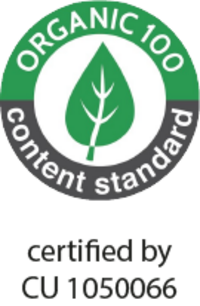
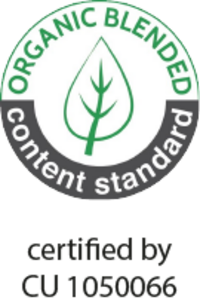
|
 |
|
RCS |
The "Recycle claim Standard" (RCS 100 - min. 95% recycled material ) and the "Recycle Claim Standard blended" (RCS blended - min. 5% recycled material ) make it possible to record the exact proportion of recycled raw materials in a product and to follow it up through entire production chain. This standard does not contain any requirements on the chemical additives used and does not include guidelines on environmental management and social responsibility. |
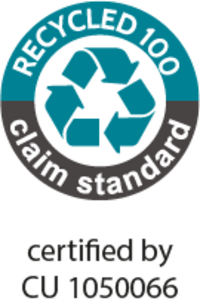
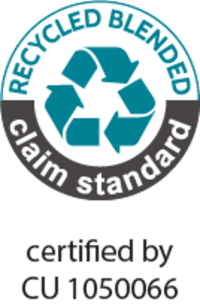
|
 |
|
OEKO-TEX® STANDARD 100 |
The focus of this seal is to protect the consumer. Labelled textile products are tested for harmful residues and thus emphasise our requirement for high quality. OEKO-TEX® STANDARD 100 is a globally standard testing and certification system for raw, interim, and end product textiles at all stages. A valid Oekotex certification also covers the EU Directives in accordance with Reach. That's why we work carefully with our supply chain to ensure all products are manufactured to these standards. |
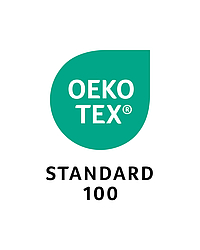
|
 |
|
| Sustainable materials | ||||
Ecovero LENZING™ ECOVERO™ Viscose |
LENZING™ ECOVERO™ Fibers offer customers an environmentally friendly viscose fiber with low environmental impact. The manufacturing process, from certified renewable wood sources, is extremely environmentally conscious and meets a high environmental standard. A special manufacturing system allows the identification of LENZING™ ECOVERO™ Viscose fibres in the end product. LENZING™ and ECOVERO™ are trademarks of Lenzing AG. |

|
 |
|
Tencel TENCEL™ Fibre |
The TENCEL™ Lyocell fibres come from the renewable raw material wood - from near-natural forests and sustainably managed plantations. The wood and pulp used by the Lenzing Group are obtained from certified and controlled sources. An environmentally conscious, closed production process guarantees low ecological impact and high resource efficiency. In addition to a convincing environmental aspect, the material also offers extraordinary properties that are immediately noticeable: skin-friendly and soft touch, with high breathability and a fashionable look. The TENCEL™ Modal fibre is mainly produced from the renewable raw material beech wood. Environmentally friendly production is supported by the use of renewable energy and the recovery of process chemicals. Textiles made from TENCEL™ Modal fibres have a particularly soft feel that lasts even after repeated washing. TENCEL™ is a trademark of Lenzing AG |

|
 |
|